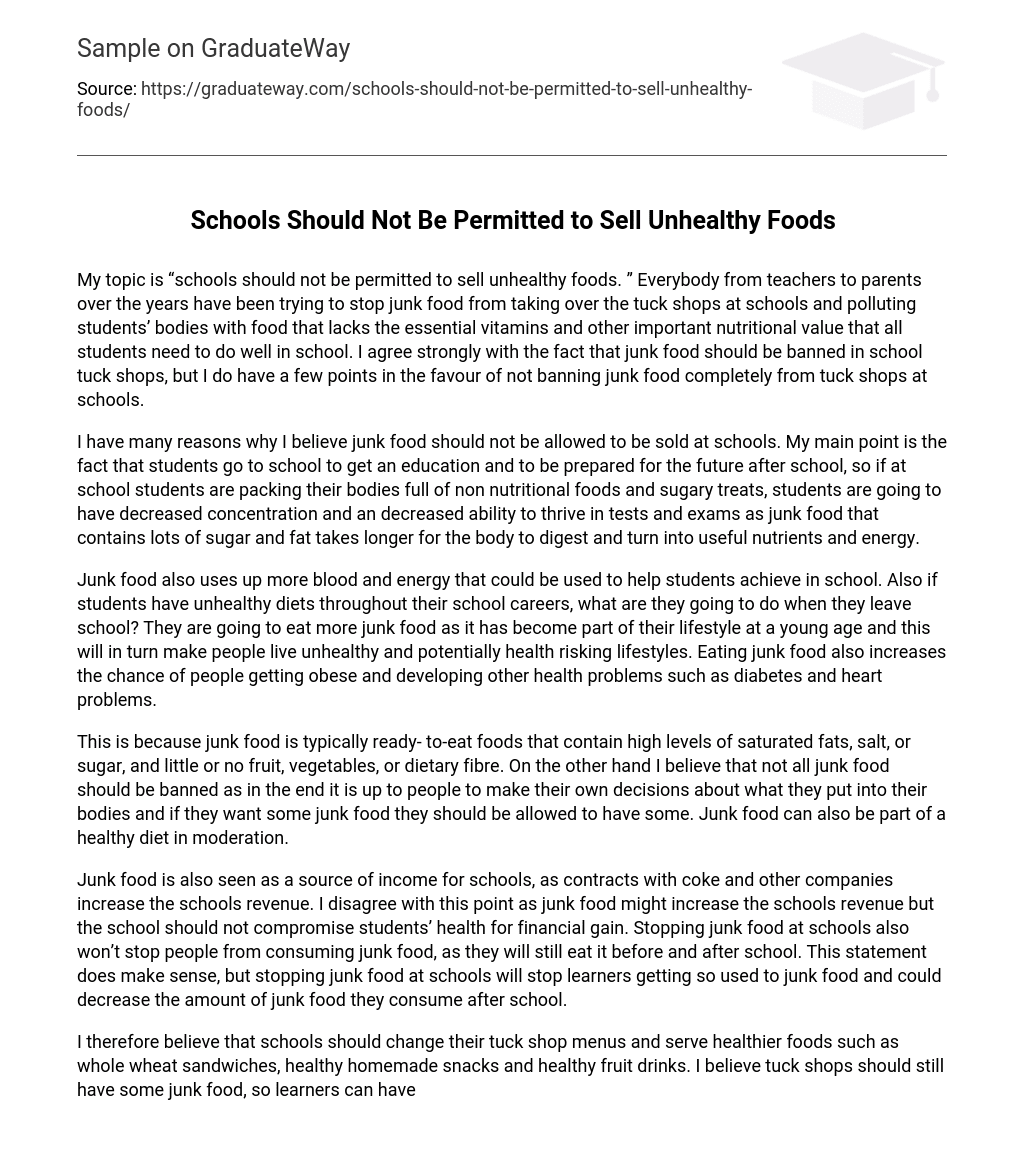There is a widespread agreement among teachers and parents that it is necessary to remove unhealthy foods from school tuck shops. The primary reason for this belief is that junk food does not provide the necessary nutrients for students to excel academically. While I strongly support removing junk food from school tuck shops, I do have a few arguments in favor of allowing limited availability of these items.
Opposing the sale of junk food in schools is my stance due to multiple reasons. The primary reason is that students attend school to acquire knowledge and prepare for their future endeavors. When unhealthy foods and sweets are consumed by students at school, it has a negative impact on their ability to focus and excel in assessments and examinations. This occurrence transpires because junk food, rich in sugar and fat content, requires more time to be digested and converted into essential nutrients and energy.
Consuming junk food not only depletes students’ blood and energy, hindering their academic success, but it also instills unhealthy dietary habits that may persist beyond their school years. Graduates who were exposed to this lifestyle early on may continue to rely on junk food, leading to an unhealthy and potentially dangerous way of living. Moreover, the consumption of junk food increases the risk of obesity and the development of health issues such as diabetes and heart problems.
While junk food often consists of pre-made items that are high in saturated fats, salt, or sugar and lacks fruits, vegetables, or dietary fiber, I believe it is important to allow individuals the freedom to choose their own diet. If someone desires to indulge in junk food, they should have the right to do so. Moreover, moderate consumption of junk food can still be incorporated into a balanced diet.
Junk food is regarded as a means of generating income for schools since agreements with companies like coke lead to an increase in school revenue. However, I am opposed to this notion because while junk food may boost the school’s income, compromising students’ health for financial gain is not ideal. Moreover, prohibiting junk food at schools will not entirely prevent people from consuming it as they will still indulge before and after school. Although this statement holds some validity, banning junk food at schools could help learners break their dependence on it and reduce the quantity they consume outside of school hours.
I advocate for schools to modify their tuck shop menus by including healthier options like whole wheat sandwiches, nutritious homemade snacks, and wholesome fruit drinks. While I think it is important for tuck shops to still offer some junk food, it should be consumed in moderation. Therefore, schools should not fully prohibit junk food but rather offer healthy alternatives for learners to select.





